Estimated reading time: 7 minutes
You give your cat a fresh bowl of food; she digs in immediately. Then, you hear something you didn’t expect: your cat yowls right in the middle of dinner!
Does your cat display a tendency to meow during mealtime? Many cats meow during or after eating, but what does this mean?
In this article, we’ll delve into the reasons why your cat is yowling while eating. We’ll explore everything from health concerns to behavioral issues, and even how the taste of their food could impact their vocalizations.
Key Points
She Wants More Food
One of the most common reasons why your cat might meow while eating is hunger. Like humans, cats can become especially vocal when their stomachs growling. Meowing at the food bowl can simply be your cat’s way of telling you she wants more food.
Cats have small stomachs and require frequent, smaller meals throughout the day. If your cat is meowing after eating, she might be trying to communicate that her meal didn’t satiate her.
In the world of cats, a meow for more food can often sound a lot like a yowl after eating. This doesn’t necessarily mean your cat is in pain, but it might be an indication that they’re still hungry.
Ensure that your cat’s diet is balanced and fulfills her nutritional needs. If your cat is focused on their food and continues to meow, consider consulting with your vet about your cat’s diet. They can provide advice on the appropriate portion sizes for your cat’s age, weight, and activity level.
Meowing to Get Attention
Another common reason why for cats meowing while eating is to get their owner’s attention. Cats are intelligent animals and know cats love interaction and engagement with their humans, especially during mealtime. If she starts meowing while eating, it could be that your cat wants your attention.
This behavior can be especially prevalent in kittens and elderly cats. Your kitty might meow after eating because they want to play, while your elderly cat could be seeking reassurance or company.
Attention-seeking meows can be distinguished from other types of meows by their timing. If your cat meows or yowls before, during, or immediately after eating and then stops once they get your attention, it’s likely they are seeking your companionship.
How can you prevent your cat from developing this attention-seeking behavior? Spend more time with your cat outside of their mealtime. Engage in interactive playtime, use toys, or simply sit and pet them. Providing your cat with the attention they crave outside of their mealtime can help reduce their meowing while eating.
Underlying Illness
If your cat meows while eating and the meowing stops only when the food comes out, it could be a sign of an underlying health issue. Cats are extremely good at masking when they’re unwell, so any change in behavior, such as meowing or yowling during mealtime, should not be ignored.
For instance, your cat might meow while trying to eat because of dental problems. Issues such as gingivitis, broken teeth, or mouth ulcers can make eating painful for your feline friend. If your cat starts meowing more than usual, or if they seem to be avoiding hard foods or chewing on one side of their mouth, it may be a sign of dental discomforts, such as a piece of kibble lodged between her teeth.
Digestive problems like gastritis or inflammatory bowel disease can also cause a cat to meow or yowl after eating. Discomfort from gas pain or the feeling of fullness could trigger your cat to meow after eating. These health issues may be accompanied by other symptoms such as vomiting, weight loss, or changes in appetite.
If you believe your cat may be meowing due to pain or discomfort, it’s essential to take them to the vet for a thorough check-up. They can perform an examination and run diagnostic tests to identify the underlying cause of your cat’s discomfort.
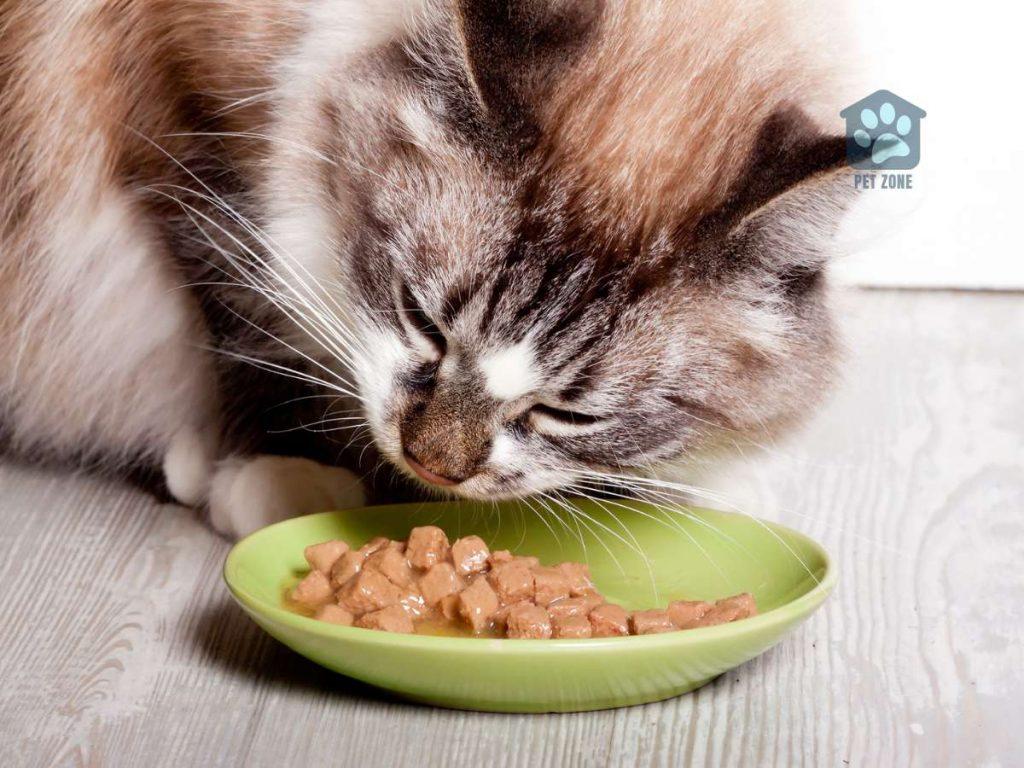
Anxiety or Stress
Just like humans, cats can experience anxiety or stress, which can lead to changes in their behavior. Cats are creatures of habit and thrive on routine.
Any disruption to their routine, like a change in their feeding schedule or moving their food bowl, can cause anxiety. If your cat starts meowing or yowling while eating, it could be a sign that your cat is feeling anxious or stressed.
Changes in their environment or daily routine such as the introduction of another cat in the vicinity or if you recently changed your cat’s food, can make them feel uneasy.
Your cat may also feel stressed if they’re eating in a noisy environment. Keep in mind that cats have more sensitive hearing than humans, and what might seem like a normal noise level to us could be overwhelming for them.
To help reduce your cat’s anxiety or stress during mealtime, try to maintain a consistent feeding schedule and ensure their eating space is quiet and comfortable. This can help ensure that your cat feels secure while they are focused on their food.
Also, consider consulting with your vet or a cat behaviorist if your cat’s yowling continues despite your efforts to provide a calm eating environment.
Behavioral Issues Related to Mealtime
Sometimes, the reason why your cat might meow while eating could be rooted in their behavior. Cats are intelligent creatures and may develop certain habits that are hard to break. Your cat might have learned to meow during mealtime to get your attention or perhaps they have associated meowing with receiving their favorite cat food.
Training your cat can be a helpful way to address this behavior. Establishing a routine for feeding can make your cat understand when it’s time to eat, reducing their need to meow for more food.
Try to feed your cat at specific times and in a designated area. In addition, using positive reinforcement techniques can encourage good behavior. For instance, reward your cat when they eat without meowing.
Remember that punishing your cat isn’t effective in addressing these issues. It can make the behavior worse and lead to other problems. Instead, focus on positive reinforcement and be patient with your cat as they learn new behaviors.
Finally, if you’ve ruled out all these reasons and your cat still meows while eating, it’s possible that they simply enjoy expressing their satisfaction! After all, every cat is unique and may have their own way of showing how much they love mealtime.
Conclusion
Understanding why your cat is meowing while eating can sometimes feel like a mystery, especially given the diverse range of potential causes. However, by closely observing your cat’s behavior and habits, you can start to decipher their unique feline language.
Remember, whether your cat is an attention-seeking kitten or an elderly cat expressing discomfort, their meows serve as a form of communication. It could be their way of telling you they want more food, they are experiencing discomfort, or they are simply trying to get your attention.
If your cat’s meowing seems unusual or excessive, don’t ignore it. It’s always best to check with your veterinarian if you have any concerns about your cat’s health or behavior. After all, it’s better to be safe than sorry when it comes to the well-being of your beloved feline friend.
So next time your cat makes a chorus out of mealtime, remember they are just trying to communicate with you. With a bit of patience and understanding, you can ensure your kitty’s mealtime is a pleasant experience for both of you.


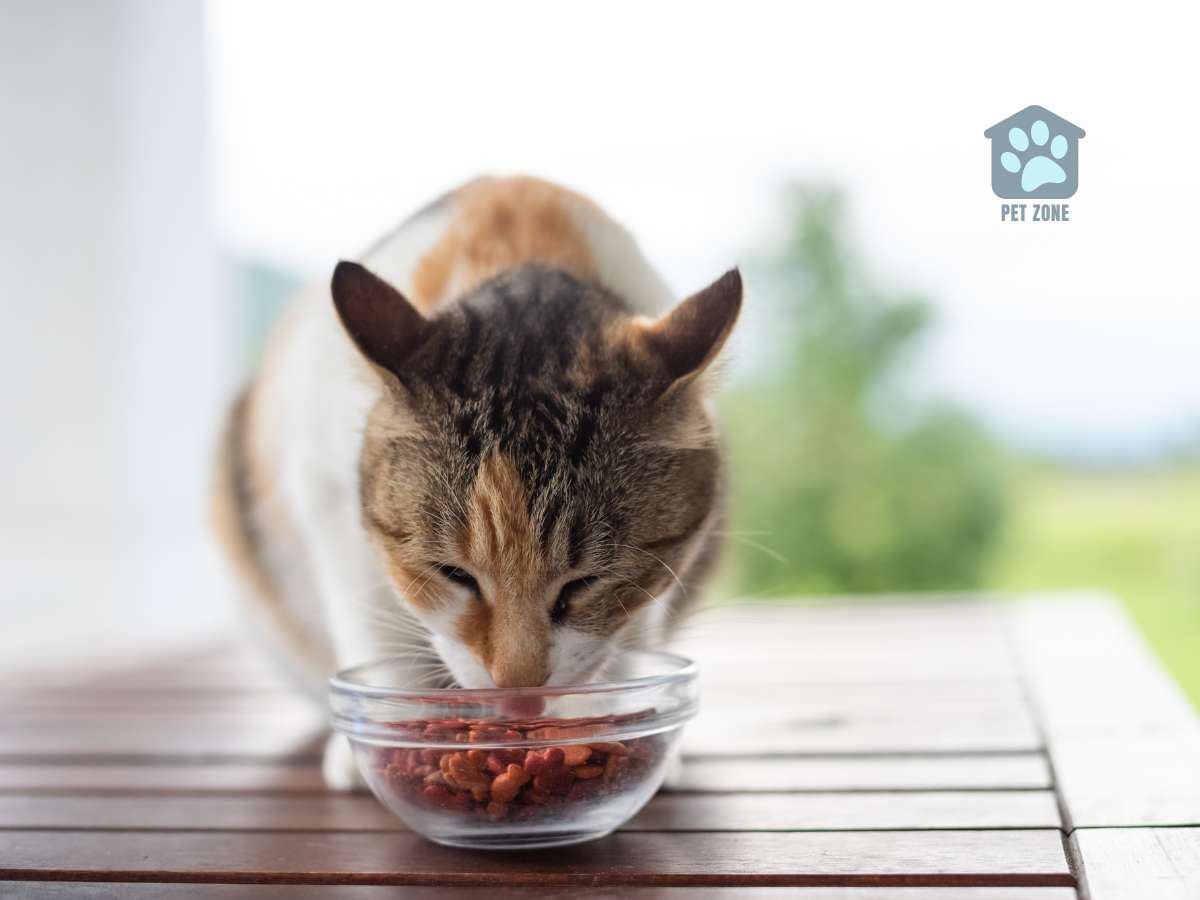
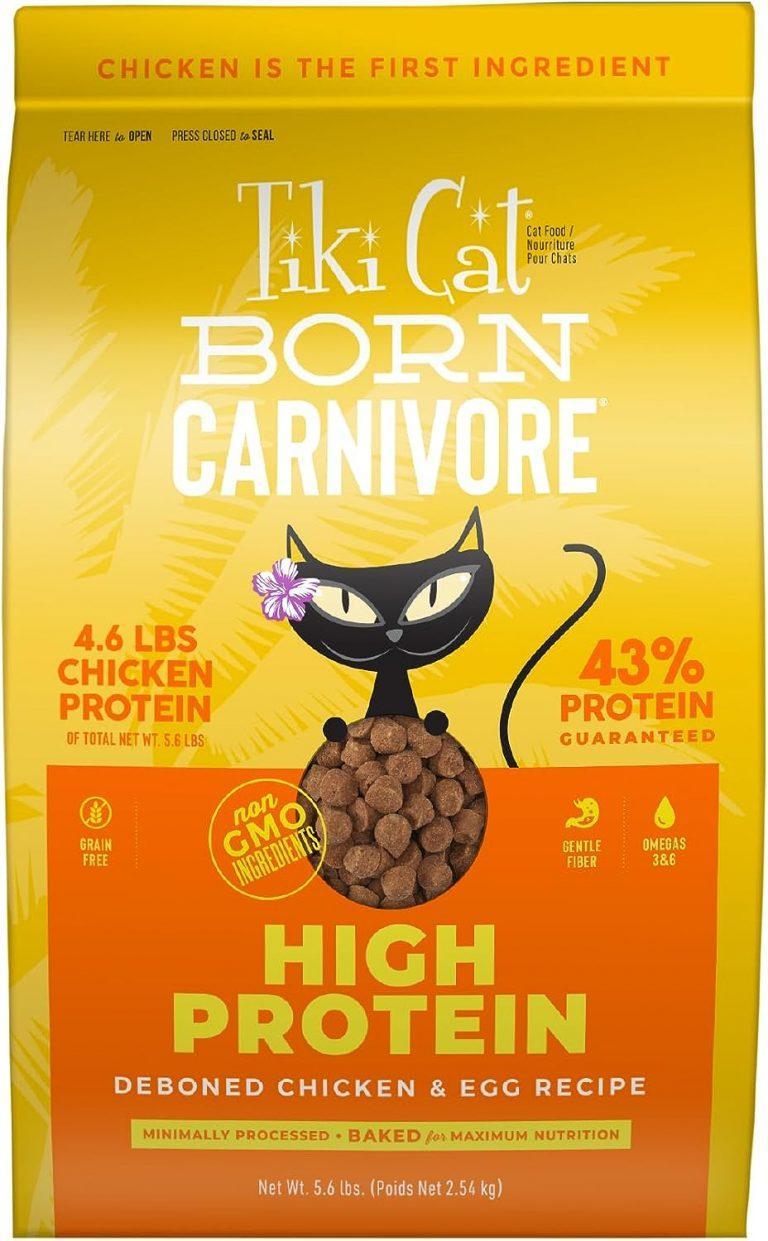
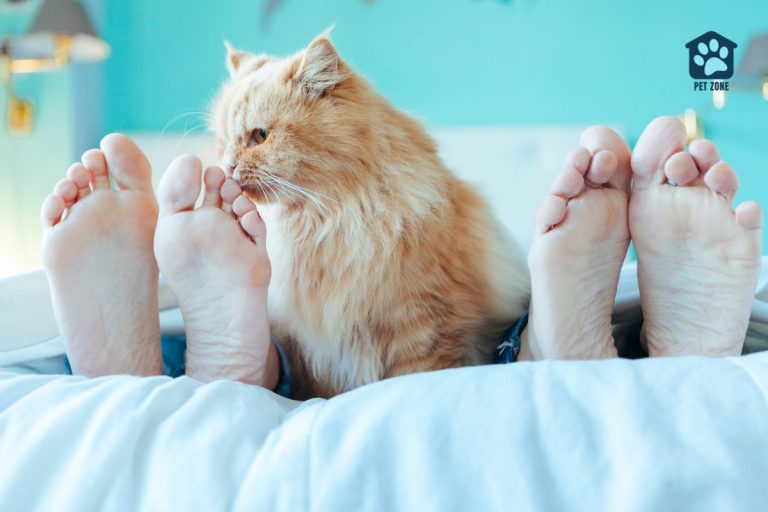
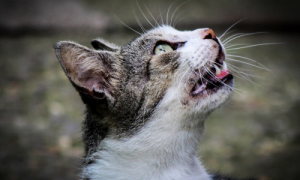
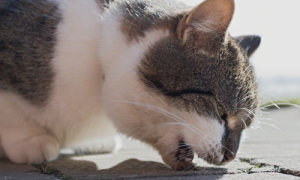
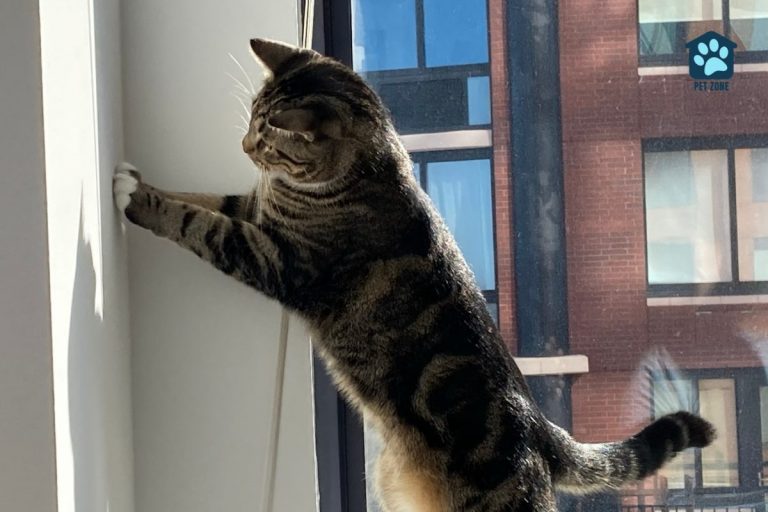

My cat is SUCH a talker. Its good to know though to keep an eye on the meowing if any health issues are causing it. Always a fan of your feline treats!